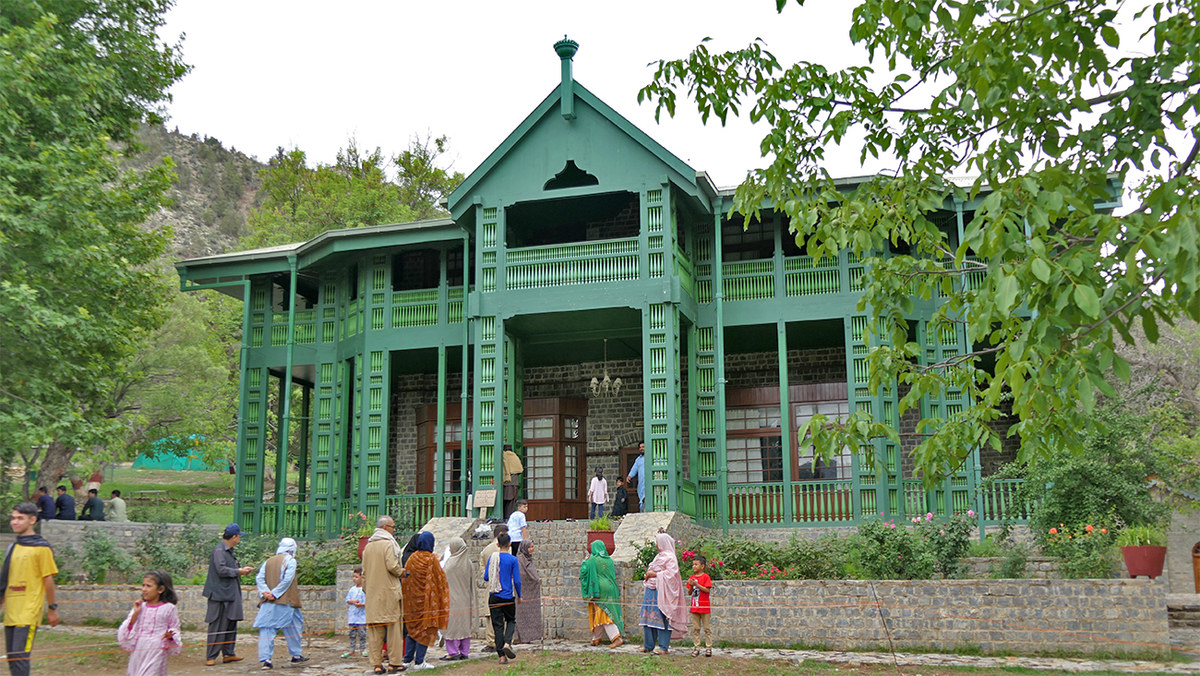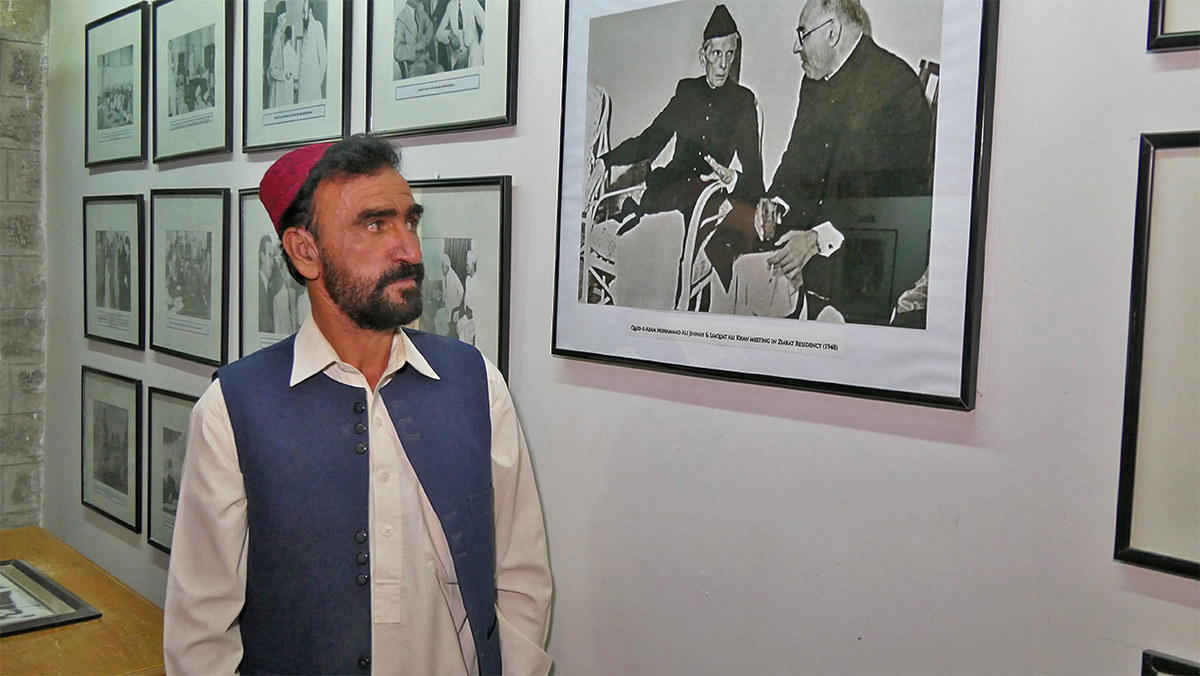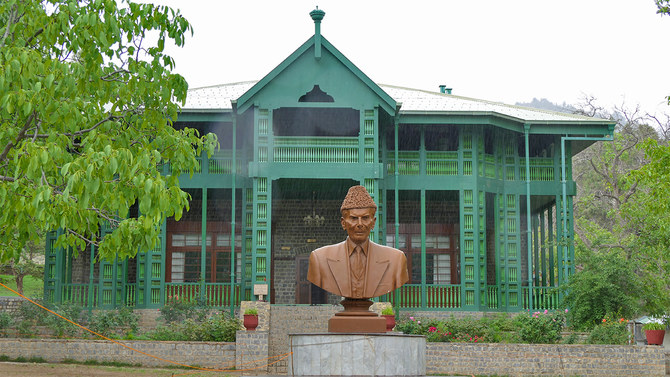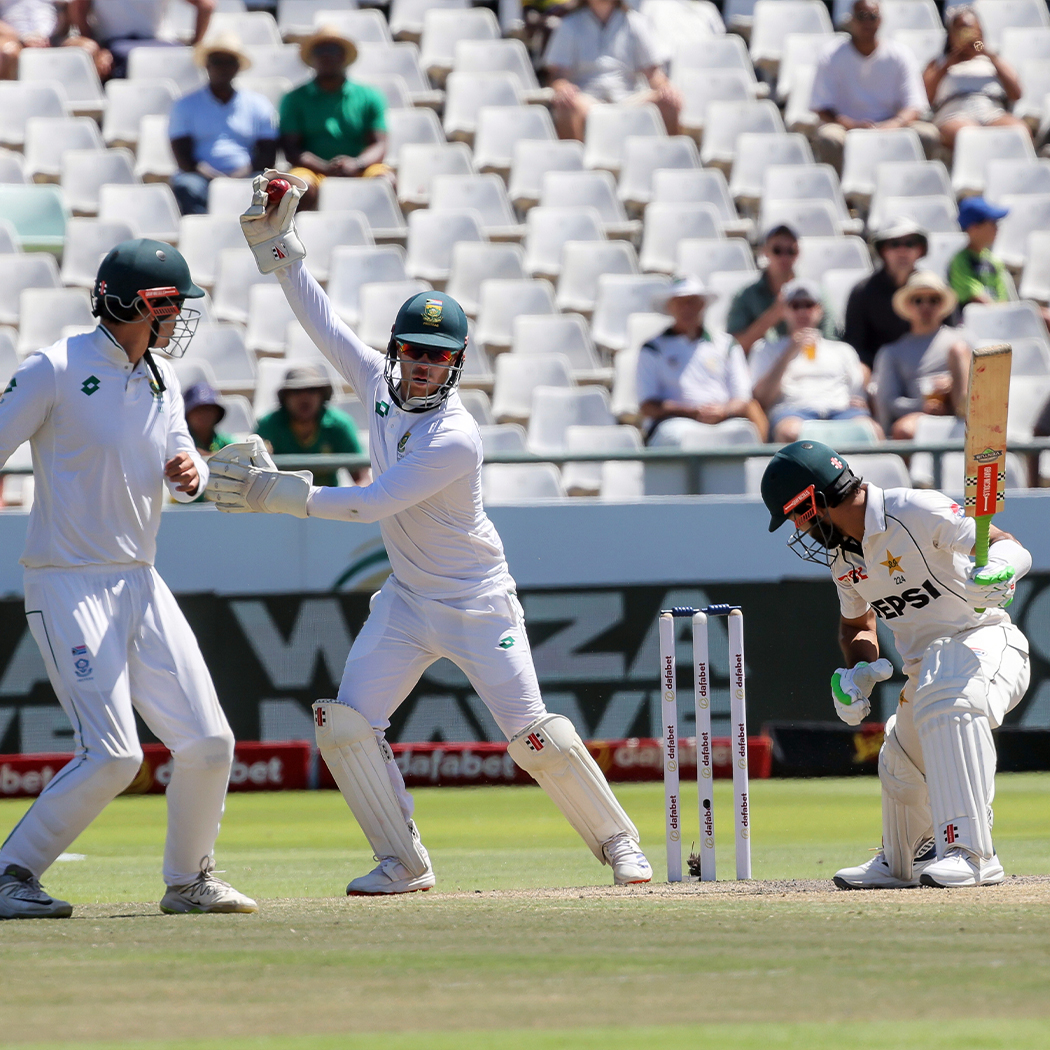QUETTA: A single bed, modest wooden furniture, and black and white photographs on the walls of a small bedroom in a 19th-century residence in southwest Pakistan present an unassuming setting.
But this is no ordinary room: it has special significance for Pakistanis as the place where the country's founding father spent some of the last days of his life.
The Ziarat, or Quaid-e-Azam, Residency, has a two-story wooden structure amidst a juniper forest and was built during British rule in 1892. Located in Ziarat Valley, a picturesque hill station in Balochistan province, the house was a summer retreat of Muhammad Ali Jinnah, Pakistan’s Quaid-e-Azam (Great Leader). It was also where Jinnah stayed for two months as he tried to recover from a lung disease a year after the success of his movement to separate Pakistan from India on Aug. 14, 1947 after the end of British colonial rule.
Decades later, people from across the country visit Ziarat to pay tribute to Jinnah's memory.

Chairs and a table used by Pakistani founder Muhammad Ali Jinnah for political meetings on display at his summer residence in Ziarat, Balochistan, on Aug. 2, 2022. (AN Photo)
“We have read about the Quaid Residency in books and heard stories from our elders … but when I stepped inside the residency, my feelings changed,” Chanda Ashraf, a 21-year-old student from Gujranwala, told Arab News.
“Inside this residency, I have experienced how the Quaid lived here and his existence was tangible,” she said. “I request all Pakistanis to visit this place once in their lifetime.”
The house has eight rooms, fitted with cedar wood. Jinnah’s bedroom is on the second floor, in front of his sister’s, Fatimah Jinnah, who took care of him in Ziarat.

Tourists take photos in front of Pakistani founder Muhammad Ali Jinnah’s summer residence in Ziarat, Balochistan, on Aug. 2, 2022. (AN Photo)
Jinnah had had tuberculosis since the 1930s, but hid his condition because he believed it would hurt him politically, historians say. In July 1948, Jinnah arrived in Quetta and journeyed to the higher retreat at Ziarat, where the Pakistani government sent the best doctors it could find to treat him. It was here that a diagnosis of tuberculosis and advanced lung cancer was confirmed.
On August 13, on the eve of the first anniversary of the independence for which he had fought so hard, the founding father was moved to the lower altitude of Quetta and finally back to Karachi on September 11, 1948.
Jinnah died later that night at 10:20 pm at his home in Karachi. He was 71 years old and Pakistan was a little over one.
Today, the Quaid’s clothes and the tableware he and his sister had used at the Ziarat summer home are on display at the residency - now a museum and one of Pakistan’s most widely visited national heritage sites.
The Quaid-e-Azam Residency has also appeared on the 100-rupee note since 2006.

A dining table used by Pakistan founder Muhammad Ali Jinnah is on display at his summer residence in Ziarat, Balochistan, on Aug. 2, 2022. (AN Photo)
Muhammad Rahim, who for the past 19 years has been working as an official tour guide at the residency, said he was proud to be working at the house belonging to the man who had “struggled for an independent country for our future generations.”
“My late uncle Toti Khan had performed duties in the residency when Quaid-e-Azam Muhammad Ali Jinnah had come to live here back in the summer of 1948,” he told Arab News.

Muhammad Rahim, a guide at the Quaid-e-Azam Residency, poses at the museum’s gallery with photos of Pakistani founder Muhammad Ali Jinnah, in Ziarat, Balochistan, on Aug. 2, 2022. (AN Photo)
“Despite two janitors hired for cleaning Quaid’s residence, I clean the entire residency with my hands, because I consider it as my service for the Quaid.”
The building was damaged in 2013, when a blaze tore through its wooden structure after a grenade attack by a Baloch separatist group. It was restored within four months.
Balochistan has long been the scene of a low-level insurgency, and a few attacks have been reported in Ziarat district in recent years, but the province’s tourism minister, Abdul Khaliq Hazara says, told Arab News the security situation was normal and thousands of people visited Jinnah’s residence every year.
“The government has been developing the infrastructure in Ziarat to facilitate tourists,” he said. “The Quaid Residency is a national heritage.”
A visitor Mohamad Alam Qasim said: "Not just for Balochistan, this is Pakistan’s heritage. Quaid-e-Azam was our national hero. He was everyone's leader."


















